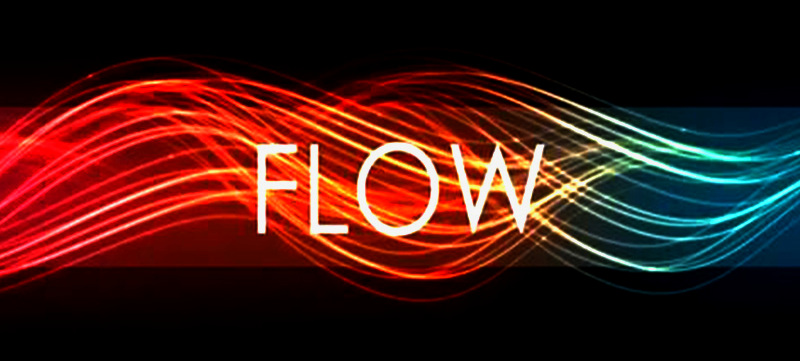FLOW (uk)
HIDDEN
The FLOW or the Optimal Experience
You may have experienced moments when your creativity and productivity were at their best, without a hitch.
Those moments when you are completely absorbed in an activity and everything is going smoothly are called a state of FLOW.
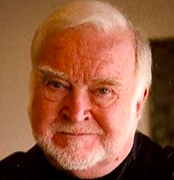
Mihaly Csikszentmihalyi is the former Chair of the Department of Psychology at the University of Chicago and the Department of Sociology and Anthropology at Lake Forrest College. He is known as the architect of the notion of FLOW, which corresponds to an optimal experience.
In positive psychology, FLOW is a mental state reached by a person when he or she is fully immersed in an activity, and is in a maximal state of concentration, full engagement and satisfaction in its accomplishment.
Basically, FLOW is characterised by a person's total absorption in their occupation.
It is a psychic state in which an individual is strongly committed to an activity for its own intrinsic value, not for any other purpose. The activity is an end in itself.
This state is so pleasurable that people are willing to seek it out, sometimes at great cost, just for the pleasure of achieving it.
FLOW-inducing activities are therefore activities for which one is intrinsically motivated.
However, beware: one can be intrinsically motivated to perform a task (e.g. lounging in the sun) without this being a FLOW situation.
For FLOW to occur, concentration and effort are required.
Conversely, some activities require a lot of concentration without intrinsically motivating an individual. They do not generate a FLOW state either.
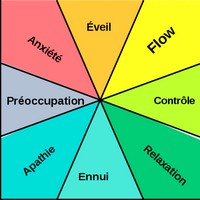
FLOW-inducing activities are demanding and can be in any field depending on the individual's interests and skills (e.g. climbing a mountain, playing in an orchestra, cooking, driving a motorbike, playing with children, etc.).
The activity in question must therefore be a challenge that requires particular skills.
These are situations in which the demands of the task correspond perfectly to the individual's abilities. That is, the individual is able to complete the task if he or she is willing to make the appropriate efforts.
FLOW is a universal phenomenon, present in all cultures around the world.
It got its name in 1975, when Csíkszentmihályi interviewed several people who described their experience by saying that they were carried along as if by the current in a river.
It can be defined in 8 major points:
- The task undertaken is achievable but challenging and requires a particular skill. This activity develops a sense of efficacy by matching our level of competence with the challenge it presents.
- The individual is focused on what they are doing
- The target is clear and intrinsically rewarding. The activity is done for its own sake, not to achieve some other goal, financial, social,...
- The activity in progress provides immediate feedback
- The individual's commitment is deep and removes all distractions
- The person is in control of their actions
- Preoccupation with the Self disappears but paradoxically the sense of Self is enhanced as a result of the optimal experience
- The perception of time is altered. In this time distortion, one is completely absorbed in the present moment, one does not feel time passing, no more hunger, no more fatigue...
When we enter a state of flow, we do not necessarily and systematically experience all these elements. Nevertheless, a large part of them will be present.
According to Csíkszentmihályi, FLOW is a totally motivation-centred state.
It is a total immersion, which is perhaps the ultimate experience, using emotions for performance and learning.
In FLOW, emotions are not only contained and channelled, but in full coordination with the task at hand.
The distinctive feature of FLOW is a spontaneous feeling of joy, even ecstasy during an activity.
In French, the expression "état de grâce" is sometimes used in a layman's sense, for example when taking up a job or taking an oral exam: the situations and actions to be carried out seem to present themselves very clearly.
FLOW has many similarities with the state of hyper-concentration, at least in its positive aspects.
The benefits of FLOW
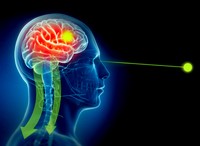
When we are in a state of FLOW, the brain releases several hormones (norepinephrine, dopamine, anandamide, serotonin and endorphin) which have several positive effects. These hormonal secretions increase our ability to retain information, our processing speed, our motivation and our capacity for adaptation and creativity.
During the FLOW experiments, there is also a decrease in activity in the prefrontal cortex, which is probably related to the loss of self-awareness, loss of self-criticism (value judgements about one's performance) and loss of the sense of time.
It is also hypothesised that this reduced activation of the prefrontal cortex would allow other areas of the brain to communicate more freely.
However, research on the neuropsychology of FLOW is still recent. These elements should therefore be considered with a certain reserve for the time being.
The concrete consequences of the optimal experience

Since optimal experiences have been identified and scientifically defined, numerous studies have shown the benefits.
FLOW has a significant impact on well-being and happiness, concentration, self-esteem, creativity and performance.
This concept has been widely used in many fields, from sport to spirituality, from education to seduction.
One type of experience that is often cited as an illustration because it is very representative of FLOW is sports. Indeed, many sportsmen and women report experiences of FLOW during their physical activity. This is what they call being "in the zone". In a physical activity that requires you to be reactive, to pay attention to what is going on around you while delivering physical effort, there is often no room to think about anything else - or performance suffers. This type of activity is therefore an easy way to induce FLOW.
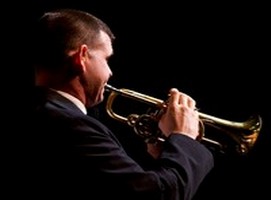
A state of FLOW is also very often observed in musicians, whether they play alone or with others. Of course, this is not systematic and requires sufficient mastery of the instrument.
But if you are neither a musician nor a sportsman, don't worry. All activities can lend themselves to the optimal experience. All that is needed is for the activity chosen to meet the criteria of interest, skill and challenge mentioned above.
Conclusion
Optimal experiences, or FLOW, are a universally held mental state that brings happiness and personal fulfilment. We have all experienced FLOW, and it is important to be able to experience it regularly.
And if you want to know more about it, I invite you to read CsiKszentmihalyi's very accessible books or to watch his TED talk on flow
Visiteurs
2973
